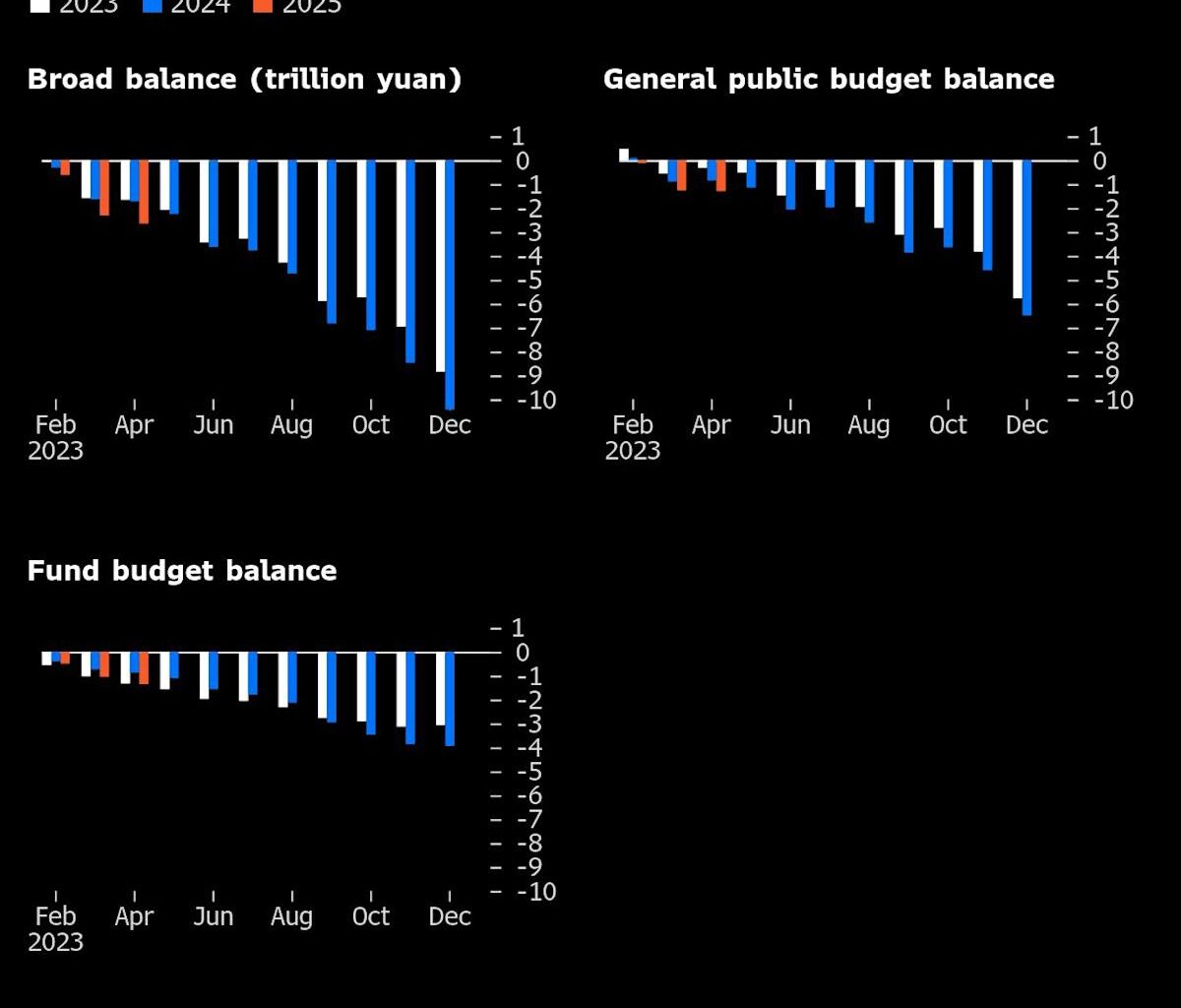(Bloomberg) — China’s fiscal stimulus pushed its four-month budget deficit to a record high, as the government ramped up support for the economy during an escalation in its trade conflict with the US.
Most Read from Bloomberg
The broad deficit reached 2.65 trillion yuan ($367 billion) in January-April, the most ever for the period, according to Bloomberg calculations based on data released by the Finance Ministry on Tuesday. The shortfall swelled by more than 50% compared with a year earlier.
It’s the clearest evidence yet that Beijing shifted into a higher gear in deploying this year’s planned fiscal stimulus to help the economy weather external shocks. US tariffs on most Chinese goods rose to a prohibitively high level of 145% in April before the two countries agreed to a truce earlier this month.
Outlays soared against the backdrop of stabilizing earnings. Total income in China’s two main fiscal books reached 9.32 trillion yuan in January-April, a decline of only 1.3% year-on-year after a much steeper drop during the first quarter.
Total expenditure rose 7.2% to 11.97 trillion yuan, the data showed. That number combines spending under the general budget, which includes mainly everyday outlays, with expenditure in the government fund budget, which is more weighted toward capital investment projects.
Looking ahead, the urgency of further fiscal support is waning after an agreement by China and the US to temporarily lower tariffs levied against each other’s products.
The truce, along with decent economic activity numbers for April, has led a few major international banks to raise their forecasts for China’s growth this year and dial back expectations of additional stimulus by the government.
Tuesday’s fiscal figures have given them more reasons to bet on the government delaying new supportive measures.
“Government spending was accelerating while revenue shows signs of stabilization,” said Zhaopeng Xing, senior strategist at Australia & New Zealand Banking Group. “The need for expanding fiscal deficit in the middle of the year has declined.”
Most Read from Bloomberg Businessweek
©2025 Bloomberg L.P.
